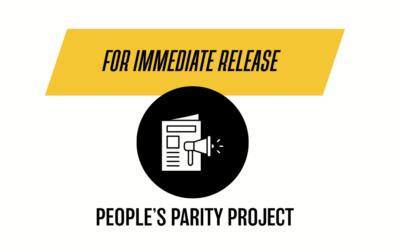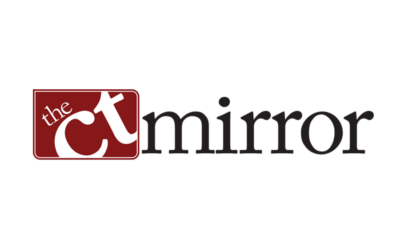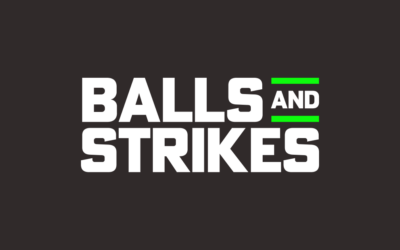OUR APPROACH
After a half century of work, the conservative legal project has paid off: our legal system almost exclusively serves corporate power and the interests of the far-right. At every turn, the legal system seems to thwart the collective power of everyday people.
We know that the legal profession is at the root of the problem, and thus it must also be at the core of the solution.
At PPP, we aim to make clear that the practice of law is inherently political. When you enter the profession you choose a side. You can be on the side of the pro-corporate forces fighting against progress, or you can be on the side of the people.
We equip our organizers to choose the side of the people, and develop and execute campaigns to build a better legal system. Our organizers support the nominations of pro-people state court judges; hold lawyers accountable for deploying coercive contracts in service of corporate power; work to open the courthouse doors to working people; campaign to ease the financial barriers for students who pursue pro-people legal careers; and more.
By successfully engaging organizers in these campaigns, we achieve three things:
1.) There are meaningful and immediate changes made to how the legal system works.
2.) The relationships formed through this work empower organizers to question the dominant norms of the legal academy and profession and stay on a pro-people career path.
3.) Organizers learn to see their role as lawyers as part of a larger fight for justice. They understand how to effectively use their legal knowledge and skills in solidarity with and in service of the broader community.
In this way, we are doing the long-term organizing work needed to achieve our ultimate goal: a legal system that works for working people, not corporate America.
ready to unf*ck the law?
Doing the work of unrigging our legal system is going to take a true movement for change within the legal profession. Are you ready to be part of it?
OUR PRIORITIES
WORKER POWER
When pro-corporate forces run our legal system, working people are left to pay the price. Because the consequences of our rigged legal system fall most heavily on working people, our we center worker power as a core tenant of our efforts.
PPP has been fighting coercive contract terms, like forced arbitration clauses and non-compete “agreements” since our founding. Our campaigns have led to thousands of workers being freed from forced arbitration clauses, helped build momentum for passage of the Forced Arbitration Injustice Repeal Act, and raised awareness about the role lawyers play in using the fine print of contracts to harm workers and consumers.
Through our chapters, we’re building communities that fight the corporate capture of the legal profession. Too often, law students and young attorneys are told that regardless of their values, Big Law is the best place to start their career. By exposing law students to economic justice lawyers, particularly in the plaintiffs’ bar, supporting campaigns to make this work more accessible (e.g., improving loan forgiveness options and creating more accessible information about pro-worker and pro-consumer lawyering), and raising awareness about the harm caused by corporate lawyers, we’re ensuring that law students who enter law school wanting to fight for economic justice leave doing that work.
FEDERAL JUDGES
We work to ensure that as many pro-people lawyers become judges as possible. This began with changing the public conversation, setting the standard for what a progressive judicial nominee looks like.
We’re proud to have worked with and supported multiple fantastic lawyers who have successfully been nominated and confirmed to the federal bench.
We’re equally proud to continue to hold the Biden administration accountable for putting pro-people judges on the bench, advocating for more pro-people judges at every turn.
As we work to ensure there are more pro-people judges on the bench, we are changing what justice looks like in the short term. Equally importantly, we are changing the culture of the legal profession to one in which law students and young attorneys recognize that a career in public interest will open—not close—doors.
STATE COURTS
The vast majority of individuals who interact with the legal system will do so through the state court system. And for as long as the federal judiciary remains in the control of far-right reactionaries with too much power, state courts will seem to be a more viable path for litigation that advances the rights of the American people.
However, without adequate democratic engagement, these courts are also at risk of experiencing a crisis of legitimacy and being fully captured by the same forces that have taken control of the federal courts. We recognize that we must increase the public’s oversight of these courts, in order to ensure that state judiciaries are accountable to the people.
At PPP, we’re taking a four-pronged approach to building this democratic engagement with state courts nationwide:
1. Raising awareness about what state courts are, what they’re doing, and why it matters.
2. Building a pipeline of pro-people law students and lawyers who see service on the bench as a plausible path for a to pursue, and who have the training, network, and other support necessary to do so.
3. Supporting on-the-ground campaigns for judicial accountability. We work with our organizers and other allies to hold accountable pro-corporate and pro-carceral judges and judicial candidates, and to build community-led movements to push for a better vision of justice.
4. Working with the Center for Community Alternatives, we’ve built the State Courts Organizing Network, which unites grassroots organizations and activists nationwide to influence judicial selection and shift judicial decision-making at the local level. Through this network, we’re building a community of grassroots leaders who can share best practices and resources, learn from one another, and collaborate to build stronger state courts across the country.
FEDERAL COURT REFORM
The federal judiciary, led by the Supreme Court, is the most significant barrier to progress that we face. Regardless of how much is achieved by Congress and the President, the Supreme Court stands to strike it down, narrow it, or otherwise prevent the American people from reaping the benefits their elected officials won.
In the short-term, there are key things that can be done to ameliorate this risk. This includes nominating and confirming pro-people judges and expanding the size of the Supreme Court in order to restore balance after years of illegitimate power grabs by the far right.
However, this alone is not enough. The Supreme Court is a fundamentally reactionary institution. It lacks democratic legitimacy, and its record makes clear the consequences of concentrating immense power in the hands of unelected, unaccountable elites. We’re fighting to wrestle back power from the federal judiciary—principally the Supreme Court—and put it in the hands of democratically accountable actors, where it belongs.
To do this, we’re taking on three key roles in the effort to disempower the courts:
1. Bringing people together to build workable strategies to disempower the justiciary, prioritizing those that have the potential to have popular support amongst both leaders and the grassroots.
2. Playing a critical thought leadership role, ensuring that the power of the courts—the power it has now, and the questions as to what power it should have in the future—is at the center of every conversation about the progressive project.
3. Building a movement, in partnership with allies and our organizing base, to fight for concrete power-shifting reforms that put power back in the hands of the branches of government with true democratic legitimacy.
Through this work, we aim to alleviate harm in the short term while working with progressive allies and people around the country so that we don’t find ourselves confronting a rogue, anti-democracy court every few decades.
The latest
‘Emhoff Must Resign,’ Willke Farr Capitulation is New Low for Big Law
FOR IMMEDIATE RELEASE: April 1, 2025 'Emhoff Must Resign': Willke Farr Capitulation is a New Low for Big Law The following statement is attributable to Molly Coleman, executive director of the People's Parity Project:"Willke Farr's capitulation to Trump is absolutely...
PPP in the News: The first thing we do is, let’s kill all the lawyers
. Trump and his allies realize that undermining the legal infrastructure of the nation is critical to their plan to build an authoritarian regime in the United States. Whether it succeeds or not will depend on whether the nation’s leading lawyers have the fortitude and moral clarity to stand up for democracy, justice and the rule of law.
Report: Imbalanced Justice in California
People's Parity Project Report Shows that California Judiciary is Mostly Former Prosecutors and Corporate Lawyers FOR IMMEDIATE RELEASE October 23, 2024 Los Angeles, CA—Today the People’s Parity Project and Isabella Lee, a recent graduate of UCLA Law, released...
Report: Imbalanced Justice in Massachusetts
FOR IMMEDIATE RELEASE August 5, 2024 Raleigh, NC—Today, the People’s Parity Project released “Imbalanced Justice: Massachusetts,” the most recent installment in a series of reports on professional diversity on state benches across the country. This new report examines...
REPORT: Protecting Workers’ Rights and Democracy from the Courts—A Practical Guide to Court Reform
For Immediate Release: Tuesday, June 18, 2024 Press Contact: Molly Coleman, molly@peoplesparity.org People’s Parity Project Releases New Report on Protecting Workers’ Rights and Multiracial Democracy from the Federal Courts June 18, 2024 | Washington, D.C.—Today, the...
Ending Judicial Supremacy
The Problem The Supreme Court has too much power. Beginning with the 1803 case Marbury v. Madison, in which the power of judicial review was given to the Court by the Court, the justices of the Supreme Court have been on an unrelenting march to concentrate power in...
REPORT: The People v. Corporate America in Arizona
Today, the People’s Parity Project released a report detailing its research into Arizona Supreme Court cases over the last 20 years. The report’s findings show that the high court has become increasingly pro-corporate, causing significant harm to workers and consumers...
PPP in the News: CT must continue to include non-lawyers in judicial selection process
PPP's own Steve Kennedy writes for the CT Mirror about proposed legislation in Connecticut that would, "strip several non-lawyer Judicial Selection Commission (JSC) seats and hand them to lawyers, which would increase the insularity of the process and eliminate an...
PPP in the News: Top Democrats won’t join calls for Justice Sotomayor to retire, but they still fear a Ruth Bader Ginsburg repeat
Sahil Kapur and Lawrence Hurley write for NBC News that, "Democratic senators are not joining calls on the left for liberal Justice Sonia Sotomayor to retire. But for the first time, they’re publicly expressing an unease that history could repeat itself after Justice...
PPP in the News: “Why Are Law Schools Outsourcing Student Services to the Federalist Society?”
PPP's own Molly Coleman writes for Balls & Strikes that, "law schools have managed to offload a significant amount of the work of training the next generation of lawyers." "Outsourcing their work to publishing behemoths, legal nonprofits, bar prep companies, and...








